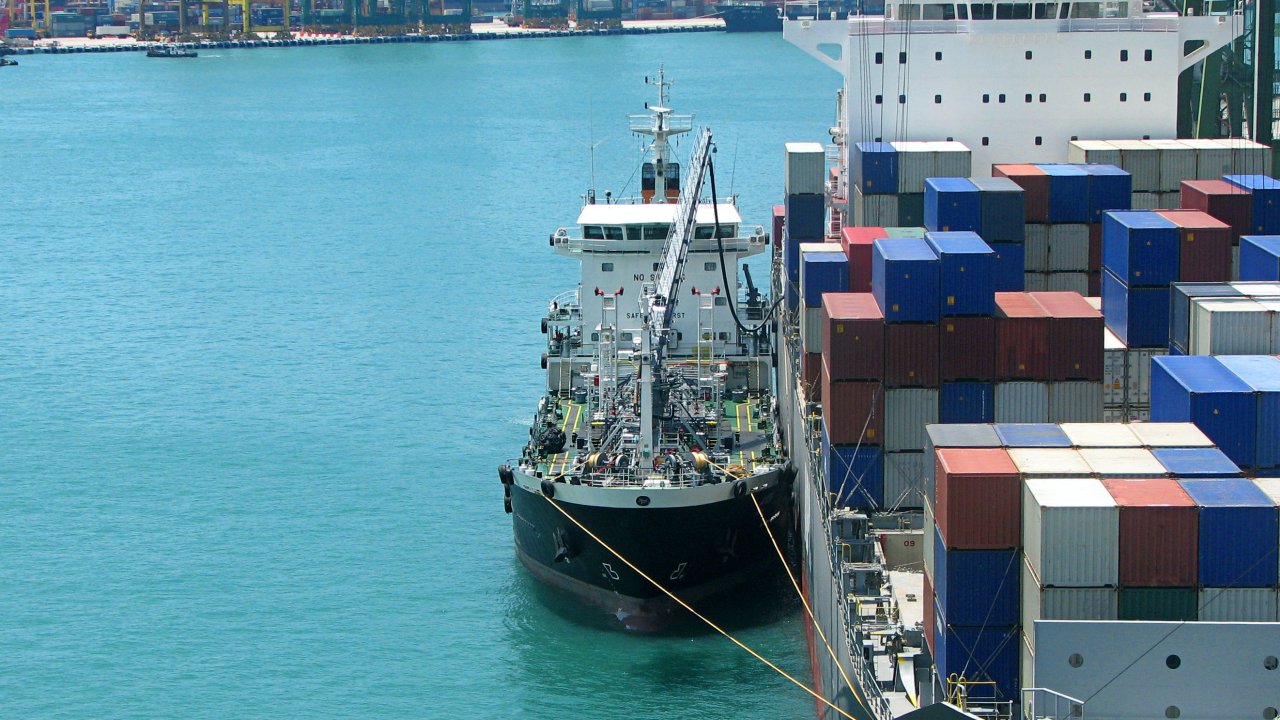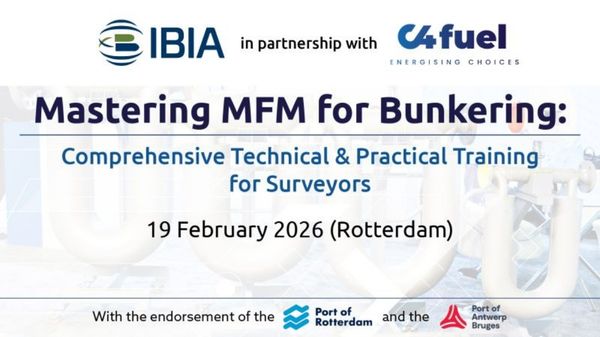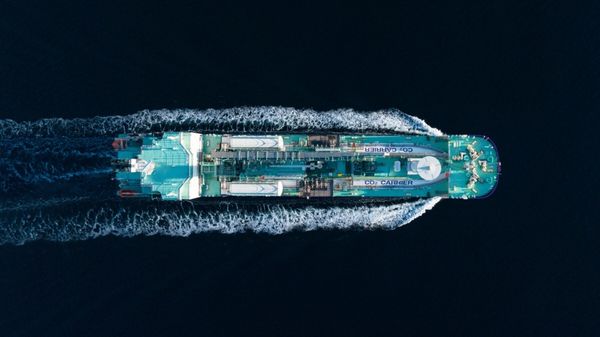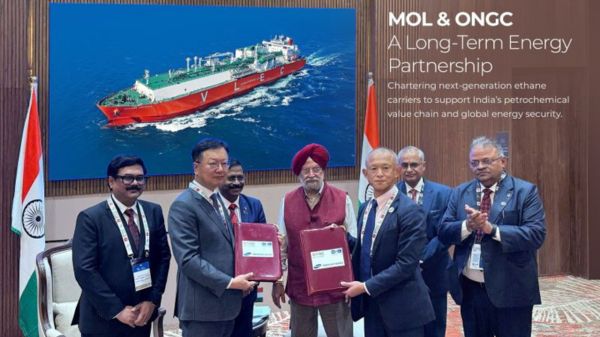
 |
Bunker Holding has concluded its first blockchain-powered carbon insetting operation as part of a new partnership with carbon insetting specialist 123Carbon, and Bureau Veritas.
The tie-up allows for the additional cost delivery of lower carbon, alternative marine fuels – such as sustainable biofuel – to be shared by carriers, freight forwarders, and cargo owners within the same value chain; allocated based on a globally accepted book and claim methodology.
"We're excited to work with 123Carbon and Bureau Veritas, as we believe in complete transparency of how insets are created and transferred. Insetting is not new, but one concern within the maritime sector is under what circumstances alternative fuels are supplied, and who owns the emissions reductions," said Tobias Troye, Head of Carbon Solutions at Bunker Holding.
By combining its alternative fuel supply expertise, its access to low-carbon fuels and carrier network with 123Carbon's platform, Bunker Holding says it can now offer carriers, freight forwarders, and cargo owners complete transparency and assurance regarding how their insets reduce maritime emissions.
"We are delighted that Bunker Holding not only uses our advanced platform for the issuance of the certificates, but has also chosen a fully branded solution to deliver the certificates in a secure environment to its customers," remarked Jeroen van Heiningen, Managing Director of 123Carbon.
By working with 123Carbon's blockchain-based insetting platform, and Bureau Veritas as third-party assurance partner to verify the fuel intervention and all related documentation, Bunker Holding is looking to ensure that all insets are issued according to Smart Freight Centre's Book & Claim methodology and 123Carbon's assurance protocol.
To facilitate the intervention, Bunker Holding connected three different parties: the cargo owner, who wishes to reduce their scope 3 emissions and is willing to pay the 'green premium'; the ship operator, to decarbonise its vessels through the use of biofuels; and the biofuel supplier, to deliver safe, high-quality low-carbon fuels. Due to the commitment from the cargo owner to purchase scope 3 insets, Bunker Holding was able to offer the biofuel at a more competitive cost to the ship operator, enabling the carrier to use biofuels instead of conventional fossil fuels.
"As a group, we are operationalising our decarbonisation strategy, and one key component has been to develop our alternative marine fuel supply capabilities, among others by securing fully certified biofuel availability in more than 100 ports around the world. The relative higher cost of alternative fuels may still prevent carriers to bunker it. However, carbon insetting helps bridge that gap, as it enables cost sharing and also sends an important demand signal to alternative fuel producers to scale up production," commented Valerie Ahrens, Senior Director of New Fuels and Carbon Markets at Bunker Holding.

|
Maersk takes delivery of first methanol-capable vessel in 9,000-teu series
Tangier Maersk is the first of six mid-size container ships with methanol-capable dual-fuel engines. |
|
|
|
||

|
IBIA to run surveyor training course for mass flow meter-equipped bunkering in Rotterdam
One-day course scheduled for 19 February aims to prepare professionals for MFM-equipped bunkering operations. |
|
|
|
||

|
MOL secures two 12,000-cbm CO2 carriers for Northern Lights expansion
Japanese shipowner to deliver vessels in 2028 for cross-border carbon transport and storage project. |
|
|
|
||

|
MOL and ONGC sign 15-year charter deal for two ethane carriers
Japanese shipowner expands fleet to 16 vessels with newbuildings scheduled for delivery in 2028. |
|
|
|
||

|
Dual-fuel container ship and vehicle carrier fleet reaches 400 vessels
World Shipping Council reports 83% increase in operational dual-fuel vessels during 2025. |
|
|
|
||

|
Lloyd’s Register publishes first guidance notes for onboard hydrogen generation systems
Classification society addresses regulatory gap as shipowners explore producing hydrogen from alternative fuels onboard. |
|
|
|
||

|
Rotterdam bunker industry faces upheaval as new regulations drive up costs and shift volumes
Red III compliance costs and a mass flow meter mandate are creating operational challenges across the ARA region. |
|
|
|
||

|
VPS appoints Neil Chapman as managing director for the Americas
Maritime services company names industry veteran to lead regional operations and client partnerships. |
|
|
|
||

|
Maritime industry shifts towards LNG as alternative fuel enthusiasm stalls
Geopolitical concerns drive shipping leaders to prioritise established fuels over newer alternatives, survey finds. |
|
|
|
||

|
OceanScore reaches $5m annual recurring revenue as emissions compliance demand grows
Hamburg-based firm supports compliance workflows for more than 2,500 vessels as regulations enter operational phases. |
|
|
|
||
| Bunker Holding and NeoGreen Hydrogen sign MoU for green ammonia and synthetic fuels [News & Insights] |
| Bunker One and Acelen launch Itaqui anchorage operation [News & Insights] |
| Bunker One launches its first methanol bunker tanker [News & Insights] |